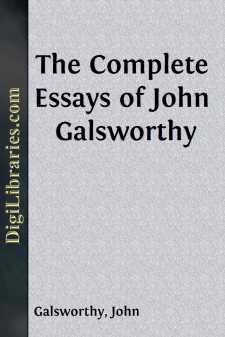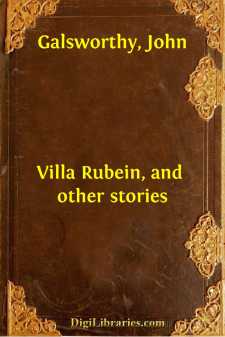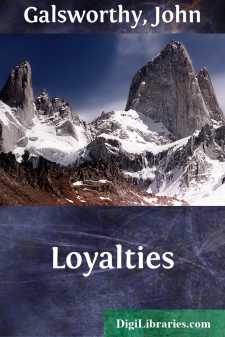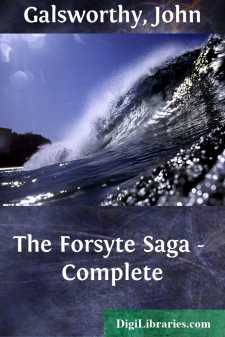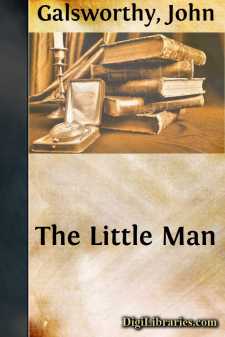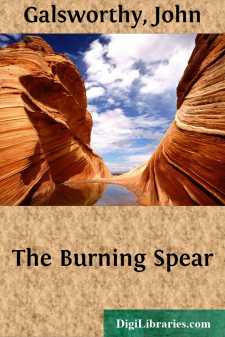Categories
- Antiques & Collectibles 13
- Architecture 36
- Art 48
- Bibles 22
- Biography & Autobiography 815
- Body, Mind & Spirit 144
- Business & Economics 28
- Children's Books 18
- Children's Fiction 14
- Computers 4
- Cooking 94
- Crafts & Hobbies 4
- Drama 346
- Education 58
- Family & Relationships 59
- Fiction 11834
- Games 19
- Gardening 17
- Health & Fitness 34
- History 1378
- House & Home 1
- Humor 147
- Juvenile Fiction 1873
- Juvenile Nonfiction 202
- Language Arts & Disciplines 89
- Law 16
- Literary Collections 686
- Literary Criticism 179
- Mathematics 13
- Medical 41
- Music 40
- Nature 179
- Non-Classifiable 1768
- Performing Arts 7
- Periodicals 1453
- Philosophy 65
- Photography 2
- Poetry 896
- Political Science 203
- Psychology 44
- Reference 154
- Religion 515
- Science 126
- Self-Help 85
- Social Science 83
- Sports & Recreation 34
- Study Aids 3
- Technology & Engineering 59
- Transportation 23
- Travel 463
- True Crime 29
John Galsworthy
John Galsworthy (1867-1933) was an English novelist and playwright renowned for his series of novels collectively titled "The Forsyte Saga," which offers a critical portrayal of the upper-middle-class in Britain during the late 19th and early 20th centuries. He was awarded the Nobel Prize in Literature in 1932 for his distinguished art of narration which takes its highest form in "The Forsyte Saga." Galsworthy was also a social activist, advocating for prison reform, women's rights, and animal welfare throughout his life.
Author's Books:
Sort by:
by:
John Galsworthy
THE INN OF TRANQUILLITY Under a burning blue sky, among the pine-trees and junipers, the cypresses and olives of that Odyssean coast, we came one afternoon on a pink house bearing the legend: "Osteria di Tranquillita,"; and, partly because of the name, and partly because we did not expect to find a house at all in those goat-haunted groves above the waves, we tarried for contemplation. To the...
more...
by:
John Galsworthy
ACT I It is Ascension Day in a village of the West. In the low panelled hall-sittingroom of the BURLACOMBE'S farmhouse on the village green, MICHAEL STRANGWAY, a clerical collar round his throat and a dark Norfolk jacket on his back, is playing the flute before a very large framed photograph of a woman, which is the only picture on the walls. His age is about thirty-five his figure thin and very...
more...
by:
John Galsworthy
PREFACE Writing not long ago to my oldest literary friend, I expressed in a moment of heedless sentiment the wish that we might have again one of our talks of long-past days, over the purposes and methods of our art. And my friend, wiser than I, as he has always been, replied with this doubting phrase "Could we recapture the zest of that old time?" I would not like to believe that our faith in...
more...
by:
John Galsworthy
ACT I SCENE I The dressing-room of CHARLES WINSOR, owner of Meldon Court, nearNewmarket; about eleven-thirty at night. The room has pale greywalls, unadorned; the curtains are drawn over a window Back LeftCentre. A bed lies along the wall, Left. An open door, Right Back,leads into LADY ADELA's bedroom; a door, Right Forward, into a longcorridor, on to which abut rooms in a row, the whole length of...
more...
by:
John Galsworthy
QUALITY I knew him from the days of my extreme youth, because he made my father's boots; inhabiting with his elder brother two little shops let into one, in a small by-street-now no more, but then most fashionably placed in the West End. That tenement had a certain quiet distinction; there was no sign upon its face that he made for any of the Royal Family—merely his own German name of Gessler...
more...
by:
John Galsworthy
"The Forsyte Saga" was the title originally destined for that part of it which is called "The Man of Property"; and to adopt it for the collected chronicles of the Forsyte family has indulged the Forsytean tenacity that is in all of us. The word Saga might be objected to on the ground that it connotes the heroic and that there is little heroism in these pages. But it is used with a...
more...
by:
John Galsworthy
SCENE I Afternoon, on the departure platform of an Austrian railwaystation. At several little tables outside the buffet personsare taking refreshment, served by a pale young waiter. On aseat against the wall of the buffet a woman of lowly station issitting beside two large bundles, on one of which she has placedher baby, swathed in a black shawl. WAITER. [Approaching a table whereat sit an English...
more...
by:
John Galsworthy
Part IIAt the door of St. George's registry office, Charles Clare Winton strolled forward in the wake of the taxi-cab that was bearing his daughter away with "the fiddler fellow" she had married. His sense of decorum forbade his walking with Nurse Betty—the only other witness of the wedding. A stout woman in a highly emotional condition would have been an incongruous companion to his...
more...
by:
John Galsworthy
THE HERO In the year —— there dwelt on Hampstead Heath a small thin gentleman of fifty-eight, gentle disposition, and independent means, whose wits had become somewhat addled from reading the writings and speeches of public men. The castle which, like every Englishman, he inhabited was embedded in lilac bushes and laburnums, and was attached to another castle, embedded, in deference to our national...
more...
by:
John Galsworthy
ABOUT CENSORSHIP Since, time and again, it has been proved, in this country of free institutions, that the great majority of our fellow-countrymen consider the only Censorship that now obtains amongst us, namely the Censorship of Plays, a bulwark for the preservation of their comfort and sensibility against the spiritual researches and speculations of bolder and too active spirits—it has become time...
more...


